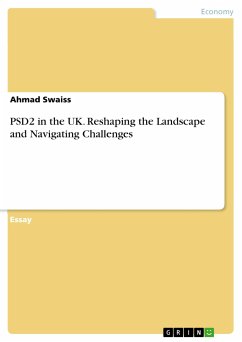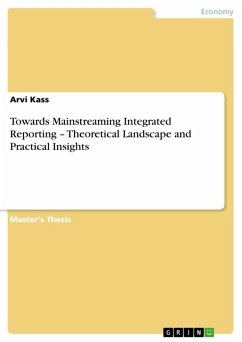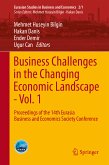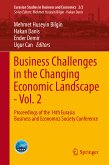Essay from the year 2024 in the subject Business economics - Investment and Finance, grade: -, , language: English, abstract: The Payment Services Directive 2 (PSD2) has profoundly impacted the UK's financial landscape, fostering competition, driving innovation, and prioritizing consumer protection. However, its long-term application post-Brexit remains under discussion. This Article delves into PSD2's intricate details, dissects its impact on stakeholders, and critically evaluates its effectiveness through data-driven analyses, exploring the challenges and opportunities presented by PSD2, paving the way for a more secure, open, and competitive payment landscape in the UK, even as the regulatory environment evolves post-Brexit. PSD2, enshrined in Directive 2015/2366/EU, swept across the European Union, leaving an undeniable mark on the UK's payments landscape. While Brexit complicates its future, there's no denying its significant impact. This Article acknowledges its achievements while recognizing diverse perspectives on its ongoing challenges. it analyzes the Brexit impact on key stakeholders, dissects the national implementation discord, and delves into the heated debate surrounding TPP hurdles and data privacy concerns. Ultimately, this Article seeks to answer: can the UK harness the full potential of PSD2 while navigating the challenges of a post-Brexit regulatory landscape?
Dieser Download kann aus rechtlichen Gründen nur mit Rechnungsadresse in A, B, BG, CY, CZ, D, DK, EW, E, FIN, F, GR, HR, H, IRL, I, LT, L, LR, M, NL, PL, P, R, S, SLO, SK ausgeliefert werden.









